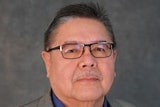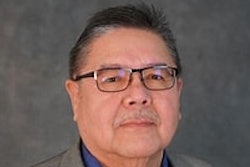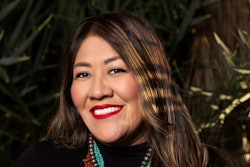Sharing A Common Interest
Growing weary of the lack of diversity in philosophy courses, Rutgers professor finds way to generate interest in the discipline among minority students
By Michelle Nealy
The philosopher’s job is to provide humanity with practical solutions to reality’s intrinsic problems. So when Dr. Howard McGary, a philosophy professor at Rutgers, The State University of New Jersey, grew weary of the lack of female and minority students in his classes and his field, he initiated an effort that would inject a healthy dose of diversity into philosophy classrooms and curricula.
In 1996 McGary, a 31-year veteran of academic philosophy, launched the Rutgers Summer Institute for Diversity in Philosophy program. The program brings together students from universities across the country for an all-expense paid week of programs, lectures and social activities. This year’s pool of 15 students was selected from 43 applicants. The students interacted with some of the leading academic philosophers in the field, including Dr. Jorge Garcia, former chair of the American Philosophical Association’s Committee on Blacks in Philosophy and author of The Heart of Racism: Essays on Diversity, Race, and Relativism, and Rutgers professor Dr. Douglas Husak, a leading scholar in criminal law philosophy.
According to the Doctorate Recipients from U.S. Universities 2003 Summary Report, of the 391 academics who received doctorates in philosophy 13 were Hispanic, eight were Asian and three were African-American. There were no American Indian recipients.
Many students from historically under-represented groups overlook philosophy as a career or academic major because they do not view it as a lucrative profession.
“People of color usually come from a background where they have to be concerned with earning a living. They don’t see how a Ph.D. in philosophy could result in a viable source of income,” says McGary.
Adam Simon, a junior philosophy major at Illinois Wesleyan University, who plans to pursue a career in philosophy, says, “People of color do not want to be philosophers, because families do not see philosophy as a practical profession. The pay is oftentimes lower for professors that teach philosophy, and the job market is smaller. My parents do not think that it will be wise for me to study philosophy in graduate school.” Simon was one of the students who attended this year’s camp, which ran from July 31-Aug. 7.
The lack of role models in the discipline is another reason minority students do not flock to philosophy departments in droves. “Philosophy is the Whitest profession of almost any profession, and people of color see it as esoteric,” Simon says.
Students want to see professors who look like them engaged in the activity. They also want to see their problems reflected in a philosopher’s work. Both of which have already started happening, says McGary.
“This program helps create a sense of community across college boundaries,” he says.
The summer institute allows students to discuss their questions and concerns with philosophy professors and graduate students in an informal environment. The presenters touch on a wide range of issues and philosophies, including African and American Indian perspectives.
Simon says the most memorable part of the program was a discussion he had with Rutgers professor Martha Bolton following a lecture she presented. “I got to sit down with her at dinner and discuss some things she couldn’t cover in her presentation. It was astounding to speak with such a well-known professor.”
During the course of the week, distinguished professors from Rutgers and other universities gave lectures on reading material that the students were given prior to their arrival. In addition, they explained what it meant to be a professional philosopher, their life experiences as critical thinkers and problem solvers and the role diversity plays in the discipline.
“I’ve learned that there is a big push toward diversity in philosophy. New interpretations from minority groups is what philosophy wants,” says Chanelle McCoy, a junior philosophy major at Howard University. “The aim of all philosophers is to discover the truth. The different modes of thought people of color contribute moves everyone closer to the main goal. It is important that all people are involved.”
Students also learned about career options beyond academia; philosophy students often go on to careers in law, politics, the arts or computer science. Sonia Santa Maria, a former Mellon Mays fellow and a senior at Emory University, says that while the entire week was enjoyable, the most rewarding part was the common interest in philosophy she found among her peers.
Last year the Summer Institute for Diversity won the Excellence and Innovation in Philosophy Programs award from the American Philosophical Association.
© Copyright 2005 by DiverseEducation.com















